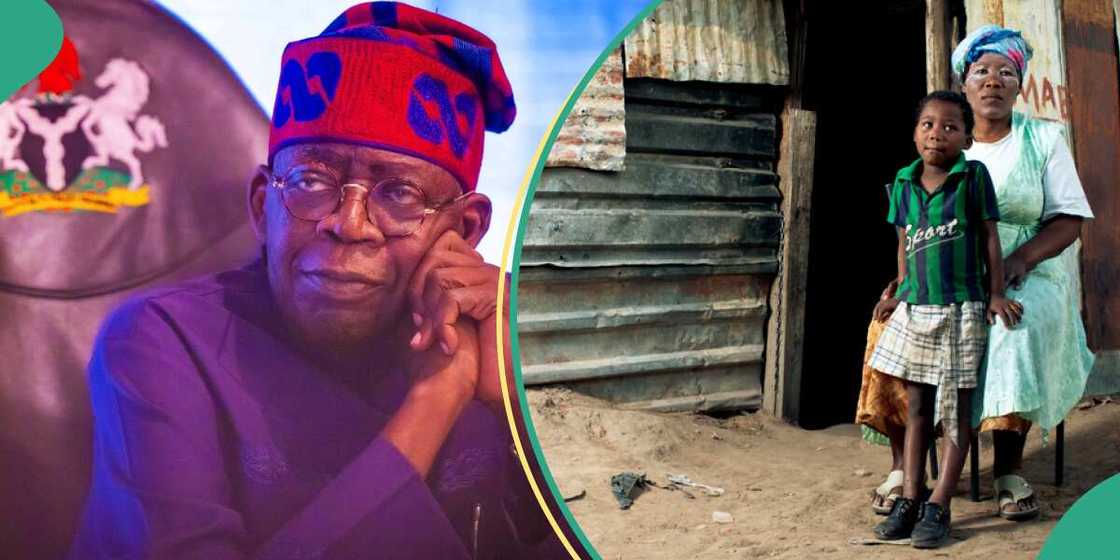World Bank Releases Data on Nigeria’s Poverty Line Under Tinubu, Lists Factors Responsible
- World Bank data shows that recent economic and fiscal reforms drove many Nigerians to become poorer
- According to the data, restructuring the foreign exchange market rate and removing petrol subsidy
- It noted that 104 million are now living below the poverty line because of the recent policies in the country
Legit.ng journalist Zainab Iwayemi has over three years of experience covering the Economy, Technology, and Capital Market.
A World Bank report has revealed that more Nigerians became poorer due to recent economic and fiscal reforms.
It revealed this in its World Bank Nigeria development update titled ‘Turning the Corner: Time to Move From Reforms to Results."

Source: Getty Images
World Bank lauds Nigeria
According to the bank, the key reforms include restructuring the foreign exchange market rate and removing petrol subsidies.
The bank complimented the federal government for what it saw as bold reforms required to save Nigeria from a fiscal cliff while characterizing the current difficulties as transitory.
However, it stated that the policies worsened the cost of living, pushing more Nigerians into hardship.
The bank noted that 104 million live below the poverty line in 2023. The number increased from 95 million in 2021 to 100 million in 2022 and worsened this year.
It noted that the impact is especially hard for poor and vulnerable citizens.
The bank noted that the FX market has remained volatile and in a period of continuing adjustment to the new policy approach, with significant fluctuations in the exchange rate in both the official and the parallel markets.
World Bank recommendations
The most recent NDU report included specific recommendations for steps that must be taken to maintain and fully realize the advantages of the reforms that the government has already started.

Read also
After leaving Nigeria, consumer goods giant P&G set to exit another African country, gives reasons
These include achieving fiscal consolidation by maintaining savings from the PMS subsidy reform, boosting non-oil income, and managing structural growth impediments, such as reducing trade restrictions, containing inflation, and enhancing the stability of the foreign exchange market.
It stated:
“With the continued implementation of macroeconomic stabilization reforms, Nigeria’s economy is expected to grow at an average annual rate of 3.5 percent in 2023-2026, or 0.5 percentage points higher than in a scenario where the reforms had not been implemented.
World Bank accuses NNPC of lying about earnings, company fires back, releases figures
In an earlier report by Legit.ng, the World Bank said the Nigeria National Petroleum Company Limited needs to be more transparent about its financial gains from petrol subsidy removal.
The bank said the earnings extend to subsidy arrears that are still being deducted and the impact of subsidy on Nigeria’s revenue.
Punch reports that the World Bank disclosed this in its Nigeria Development update, December 2023 edition.
PAY ATTENTION: Unlock the best of Legit.ng on Pinterest! Subscribe now and get your daily inspiration!
Source: Legit.ng



